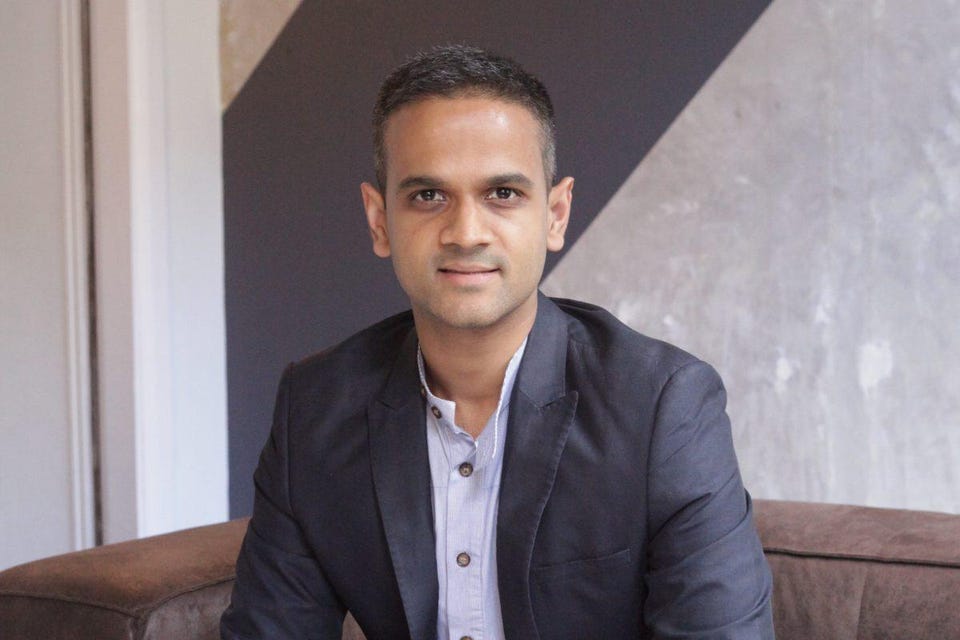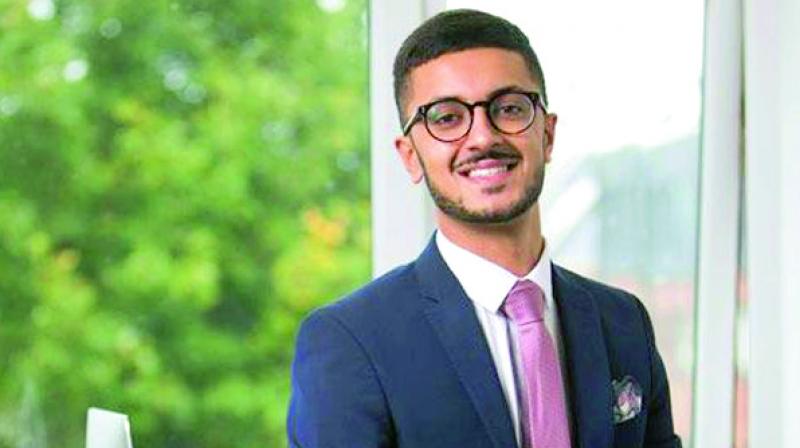(November 16, 2021) Landing a job or an internship where you aren’t just fetching coffee is no mean feat. Being able to find the right contacts, get your resume noticed, land an interview and eventually an internship or a job can be quite a long winded and complicated procedure. That’s where Rajeeb Dey, a British-Indian entrepreneur steps in. The founder of Enternships has been supporting entrepreneurs and fresh talent in the UK for more than a decade now.
Dey, who began his entrepreneurial journey as a student at age 17, has three successful ventures so far: Enternships, StartUp Britain, and Learnerbly. The entrepreneur has a tendency to help others through different platforms and associations and in recognition of his services, he was awarded an MBE at the age of 31; one of the youngest to receive the honour. Dey was also the winner of the O2 X Young Entrerpreneur of the Year Award and was named as the world’s youngest Young Global Leader by the World Economic Forum in 2012.
Delighted that @learnerbly has been chosen as one of 31 companies to join Upscale 7.0 by @TechNation alongside @perlegobooks @yotoplay @weareuncapped @gophr @VivacityLabs @ModernMilkman_ https://t.co/98iHNJ9tw8
— Rajeeb Dey MBE (@rajdey) October 12, 2021
Starting young
Born in December 1985, Dey graduated with first class honours from Jesus College, University of Oxford, where he studied Economics and Management. Incidentally, Dey launched his first venture Student Voice at age 17 as a first-year student at Oxford, for he felt that the voices of students between the ages of 11 and 19 weren’t heard. In his second year, he became the president of Oxford Entrepreneurs Society, a student society for entrepreneurs on campus. He went on to become its longest-serving president; it was around this time that he saw the opportunity for a new organisation that could bridge the gap between startups and interns. As president, Dey would receive a large number of requests from startups wanting to access his talent pool. That is when he came up with the idea of creating a simple listing page to match students and startups. This eventually grew to become Enternships, a thriving business in the UK today.
Talking to Hot Topics about his entrepreneurial journey, this Global Indian said, “My entrepreneurial journey started at the age of 17. At the time, I didn’t even know what the term entrepreneur was, I just felt that I wanted to do something to give school students a voice. I got a grant of £5,000 from a fund for social enterprises called UnLtd and that really kick started my entrepreneurial journey. I realised I liked coming up with an idea, setting something up and seeing it become a reality. That led me to join the Oxford Entreprenuers Society whilst at University, which I became President of in my 2nd year. That was a great experience and also gave me the inspiration for Enternships.”

Having started as a job listing site, it soon became a go-to platform for graduates to find jobs in startups and the venture generated a lot of buzz. The portal has so far connected several students and graduates to roles in over 7,000 fast-growing businesses such as startups, SMEs and intrapreneurial firms across the globe. It was in recognition of his work through Enternships that Dey received the O2 X Young Entrepreneur of the Year award in 2009. Enternships.com was also one of the top 3 finalists in the Esquire Magazine New Business Challenge and the finalist in the Microsoft Internet Explorer 8 Life Academy Awards.
The need to upskill
According to Dey, one of the main benefits of working with a startup is the freedom one gets. “In a start up the role is often not so clearly defined, so it’s up to you to define what you are doing and to get stuck into all aspects of the business. You are not necessarily going to get pigeon-holed into doing one particular thing, your role probably pertains to the working of the business, so you have the opportunity to really learn from alongside the founder, or the CEO to find out how business really works, and in many cases you can create your own job,” he told Palatinate in an interview.
Dey spent three years looking at the learning and upskilling industry as well as the recruitment industry to see how he could positively impact candidates’ experiences. The entrepreneur, in fact, has had a large impact on the British startup ecosystem. He co-founded StartUp Britain, a national campaign founded with seven other entrepreneurs to encourage enterprise in the UK. The campaign was launched in 2011 under the David Cameron government.

On an entrepreneurial roll
He then went on to set up his next venture Learnerbly to help companies nurture and develop talent through the program. In an interview with Forbes, he said, “At Learnerbly, we curate the best learning experiences, whether it be courses, coaching, conferences, podcasts, books, articles — the full breadth of professional development, recognising that people learn in many different ways. We want to connect you to the best learning that’s right for you in the way you like to learn.”
This he says is to help encourage holistic development of employees and steer them in the direction of possible new roles and career choices within the organisations they work at. Employees are matched to learning opportunities that are curated via peer-to-peer recommendations and insights from industry experts from companies like Google, Airbnb, and Unruly. With the market for professional learning being fragmented, Learnerbly makes it easier for companies to target staff development.
Dey, who calls himself the accidental entrepreneur, has certainly come a long way since his Student Voices days, as he sets about changing the way the UK startup eco-system, hires, retains, and develops talent.
Follow Rajeeb Dey on Twitter and LinkedIn.

